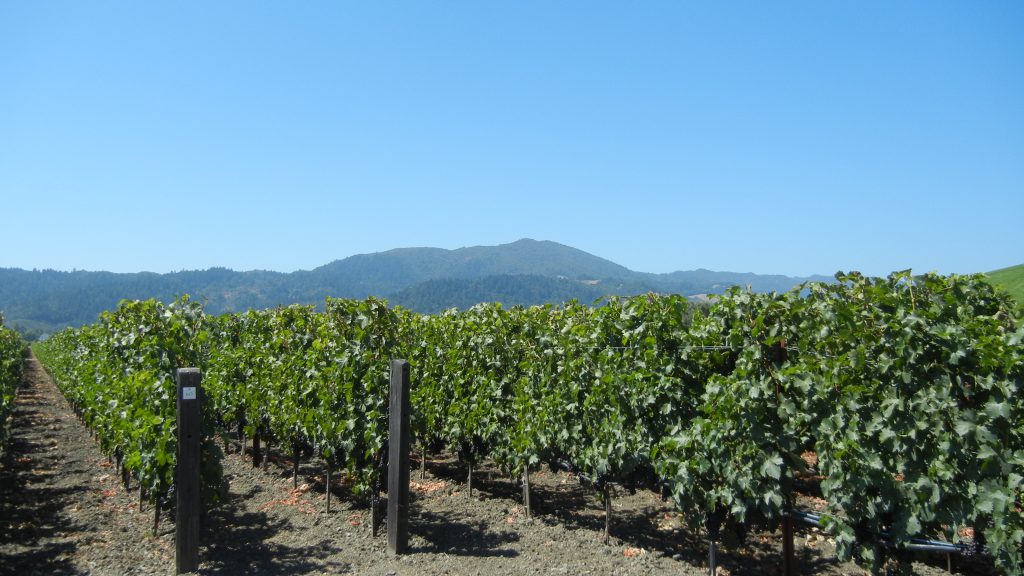 This Sunday, we hear another parable from Jesus, using the popular image of a vineyard. It is helpful to remember that He, as God’s Son, entered the “vineyard of creation” through the Incarnation. He came for the work of redemption, salvation, and sanctification of the whole human race. He came as the Just One to restore what had been lost through our disobedience, namely, our adoption as sons and daughters of God. He came to reunite us, to graft us again to the tree of Life, that our joy might be complete, and that we might have Life to the full.
This Sunday, we hear another parable from Jesus, using the popular image of a vineyard. It is helpful to remember that He, as God’s Son, entered the “vineyard of creation” through the Incarnation. He came for the work of redemption, salvation, and sanctification of the whole human race. He came as the Just One to restore what had been lost through our disobedience, namely, our adoption as sons and daughters of God. He came to reunite us, to graft us again to the tree of Life, that our joy might be complete, and that we might have Life to the full.
He tells us “I am the Vine, you are the branches. Whoever remains in me and I in him will bear much fruit, because without me you can do nothing.” (John 15:5) Jesus leads the way for us, modelling how to work in the Vineyard of God’s Kingdom. In His humanity, He demonstrates for us how to live each moment in intimate union with the Father, so as to bear much fruit, fruit that remains. “I am the true vine, and My Father is the vine grower.” (John 15:1)
In each of Jesus’ encounters and every Word He spoke, the work of God’s justice was being achieved. In every healing and miracle, He revealed in a fresh and new way, the power and love of God. As He poured out His own blood on the cross, the work of our redemption reaches it climax. The Paschal Mystery of His suffering, death, and resurrection is the culmination of His saving work; the price paid for our redemption that is far more precious than any gold or silver. Surely the vineyard is a place for laboring, laboring in love.
 Today, in Matthew’s parable, Jesus invites us into the vineyard, and promises us a just wage. As He labored in this life in communion with the Father, so are we to labor in all moments and in every area of life, in communion with Jesus. Our faith is not to be some compartmentalized part of life, separated from everything else. Our communion with Jesus (I am the vine, you are the branches) is at the heart of who we are, and all that we do. We are to bring this presence of Christ into each and every relationship and activity of our life. In His divinity, Jesus now continues his work through the Church, through the Sacraments, and through us, His members.
Today, in Matthew’s parable, Jesus invites us into the vineyard, and promises us a just wage. As He labored in this life in communion with the Father, so are we to labor in all moments and in every area of life, in communion with Jesus. Our faith is not to be some compartmentalized part of life, separated from everything else. Our communion with Jesus (I am the vine, you are the branches) is at the heart of who we are, and all that we do. We are to bring this presence of Christ into each and every relationship and activity of our life. In His divinity, Jesus now continues his work through the Church, through the Sacraments, and through us, His members.
Our labor and good works now extend the work of Jesus well beyond the streets and byways of the Holy Land of old to the many cultures or our world today. This is what the Church exists for, the work of mission and ministry, which is extending the work of Jesus. Regardless our state in life, we belong to Christ. Regardless our profession or passion, it finds its fulfillment in Christ.
Jesus’ life was a clear teaching that life is about love, and love is about pouring ones self out for another. This is the greatest human labor, to love God and our neighbor. This labor of love knows its own reward; the “just wage” accompanies the work. If we labor for any wage short of “what is just” in the eyes of God, it will never satisfy. The labor is love, the reward is Love Eternal!
 “At the end of the meal, knowing that He was to reconcile all things in Himself by the blood of His cross, He took the cup filled with wine. Again, He gave you thanks, handed the cup to His friends, and said: Take this, all of you, and drink from it: this is the cup of My blood, the blood of the new and everlasting covenant. It will be shed for you and for all so that sins may be forgiven. Do this in memory of Me.” (Eucharistic Prayer For Masses of Reconciliation I)
“At the end of the meal, knowing that He was to reconcile all things in Himself by the blood of His cross, He took the cup filled with wine. Again, He gave you thanks, handed the cup to His friends, and said: Take this, all of you, and drink from it: this is the cup of My blood, the blood of the new and everlasting covenant. It will be shed for you and for all so that sins may be forgiven. Do this in memory of Me.” (Eucharistic Prayer For Masses of Reconciliation I)
+pde
0